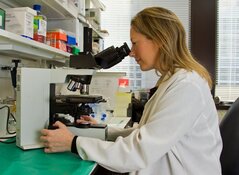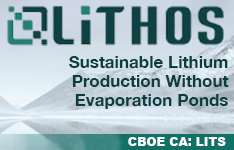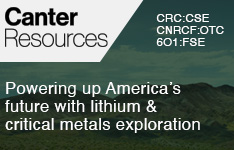The Life Sciences Report: SeeThruEquity specializes in analyzing companies with capitalizations under $1 billion ($1B). What is special about the small-cap life sciences sector?
Ajay Tandon: We cover 66 small-cap and micro-cap companies across a variety of sectors, the majority of which fall into the healthcare, life sciences and technology spaces. From our perspective, the past year was very hot for investors in this range of stocks—and also for the investment banks raising capital for the life sciences sector.
TLSR: Do you invest in the companies that you analyze?
Brandon Primack: We do not do any banking or trading in the firms that we research.
AT: Our research is completely unbiased, and we do not charge companies for it. We do host investor conferences on a regular basis. We have a conference coming up on May 28 in New York City. A lot of life sciences companies will be represented, among other small-cap sectors.
TLSR: What drives the rates of return for biotech these days?
BP: We look for catalyst-driven events. There are names in our research universe from which we expect to hear milestone news in the next few months: DelMar Pharmaceuticals Inc. (DMPI:OTCQB), Cynapsus Therapeutics Inc. (CYNAF:OTCQX; CTH:TSX.V) and Pressure BioSciences Inc. (PBIO:OTCQB). The milestone events can be truly transformative—producing as much as a 100% return on these companies.
TLSR: What is the potential milestone for Cynapsus Therapeutics?
BP: Cynapsus is reformulating apomorphine, which is the only approved drug for Parkinson's patients experiencing off-motor symptoms. Since apomorphine was approved as a treatment many years ago, we assign the reformulation a high probability of success.
Apomorphine is for patients with impaired motor function who have trouble taking their medicines. Cynapsus' reformulation of the vital drug is in a thin-strip sublingual application (APL-130277). The existing drug is sold worldwide as Apokyn (apomorphine hydrochloride injection; US WorldMeds [private]). It is administered as an injectable—a cumbersome process, often involving 21 steps, making it difficult to access for patients experiencing impaired motor function. Cynapsus' film strip for apomorphine is simply placed under the tongue, making it a tremendous leap forward in technology.
"DelMar Pharmaceuticals Inc. is breaking new ground and reporting positive topline data for VAL-083."
Cynapsus has just released data from a dose escalation study at 25 milligrams (25 mg). The topline data is positive, meaning that when the dose went from 15 mg to 25 mg, the amount of drug in the bloodstream two hours later was significantly increased. Another element that we like is that worldwide sales of apomorphine are in the $60–70 million ($60–70M) range. If the reformulation is successful, the expanded market potential could be 10 times that.
Cynapsus has laid out a concrete drug-testing roadmap, including bioequivalence and safety studies, culminating in a new drug application filing. It finished last year with $2.29M in cash. It has outlined spending needs of $18–20M for the next two years.
TLSR: How is it planning to capitalize that need?
BP: The climate for raising money for this company is obviously robust. When we initiated on Cynapsus around Thanksgiving, it was a $0.38/share stock. After it rose to $1.40/share, some warrants were exercised. When the company releases its full study data for apomorphine during the next month or so, we expect the share price will respond positively.
TLSR: Is the firm in debt?
BP: It has no debt. It had converted some debt to equity in H2/13, so additional capital will flow from equity raises. The market cap is about $21M. Our price target is $1.54/share.
TLSR: Do you have any firms specializing in developing orphan drugs in cancer research?
BP: We have initiated research on DelMar Pharmaceuticals—a name that is receiving a lot of media attention. It is working on a great drug, VAL-083, for glioblastoma multiforme, the most common and aggressive form of brain cancer.
What we find attractive is that this drug is also currently approved, in China for lung cancer. It was studied extensively many years ago by the National Cancer Institute (NCI). For whatever reason, the drug fell by the wayside as other therapies emerged and received more funding and more attention. The drug has already been tested against current standards of care.
TLSR: What is the story in China?
BP: In China, DelMar is looking for marketing partners and a strong marketing voice. It has contracted with Guangxi Wuzhou Pharmaceutical Co. (600252:SS) to put more research dollars into the Chinese lung cancer product. A round of new studies is being paid for by the Chinese firm. This deal represents no-cost, complete upside for DelMar as it both expands Chinese sales and moves through the U.S. regulatory process.
TLSR: How can a drug that works in brain cancer be used for lung cancer?
BP: VAL-083 was originally synthesized and studied in the 1960s. It is a novel alkylating agent, a first-in-class, small molecule therapeutic, and not an analog or derivative of other small molecule chemotherapeutics. It is a commonly used class of drugs. It works by binding to DNA and interfering with normal DNA replication processes within the cancer cells, thus preventing the cell from making the proteins necessary for survival and growth. In the '60s, the drug was assessed in multiple clinical studies by the NCI as a treatment against various cancers. When a drug is effective against a certain type of tumor or cancer, it makes sense to test it against other types of cancer. Positive results in DelMar's brain cancer studies compelled the firm to pursue further studies in brain cancer, and longer term the company hopes to examine the drug's efficacy in lung cancer, especially since VAL-083 is already approved for lung cancer therapy in China. For an early-stage biotech, DelMar is an attractive dual-track investment thesis.
TLSR: How has DelMar's stock been performing?
BP: When we initiated on DelMar in January, the stock was $1/share. It now trades at about the same price.
It's important to note that the company is doing a dose escalation study, administering VAL-083 in higher dosages than were used in the old NCI studies. It is breaking new ground and reporting positive topline data. DelMar plans to release a full report soon. This kind of major milestone event can take a probability-adjusted estimation of approval from a 10 to a 30 to a 70, especially in an orphan drug category where there is a significant unmet need—where patients just are not living very long on the standard of care.
TLSR: Do you have a target price for this stock?
BP: Our target price on DelMar is $4.53/share.
TLSR: That's a good jump.
AT: Two weeks ago, New York City-based investment bank Maxim Group LLC initiated coverage on DelMar. The company is increasingly visible, which is a positive sign that an increase in coverage by other investment banks is around the bend.
TLSR: Moving on to the third company you mentioned: Investors are hearing about a novel technology called "pressure cycling." What is pressure cycling and what potential does it carry in terms of researching biomolecular interactions?
BP: Pressure BioSciences came up with a proprietary, revolutionary technology in biological sample preparation. Its unique machinery puts cells through alternating cycles of high levels of hydrostatic pressure to extract information. The process looks for biomarkers that indicate the presence or absence of a disease condition. There are numerous markets for this machine; the system has applications that compare to those currently used with mass spectrographers, forensics and DNA detection. It is also a useful technique for histology—analyzing biopsies.
"Cynapsus Therapeutics Inc.'s film strip for apomorphine is a tremendous leap forward in technology."
Most laboratories use a variety of methods to analyze cells, from old-fashioned mortars and pestles to modern heat treatments. Pressure Bio's technology is a next-generation leap. And thousands of labs around the world can use it. Pressure Bio has just released its Barocycler HUB880 High Pressure Generator, which is a new, higher-pressure machine that will allow high utilization labs to process a significantly greater number of samples than they can now. The older machines operate at 35,000 pounds per square inch (35,000 psi). The new version goes up to 100,000 psi. Pressure Bio has existing relationships with 150 of the top labs in the country and it reported that the first HUB880 has been sold and shipped to the University of California, Los Angeles (UCLA). And the company is on track to release what it calls a high-throughput system. Sales growth of the machine will clearly be accelerated by the H1/14 release of the high-throughput equipment.
TLSR: How is Pressure BioSciences' stock performing?
BP: We initiated on Pressure Bio in late October 2013, at $0.23/share. It is now trading at about $0.46/share. It spiked to $0.70/share in late March, after news of its next-generation technology was released. Like many biotechs, its shares get a little hot, and then return to Planet Earth. But at the end of 2013, Pressure Bio only had $400 thousand ($400K) in debt. It had expected to raise $1.5M in a private placement. It actually raised $2.9M in February, and has extended the opportunity. We do not yet have final numbers but raising a private placement from $630K in December to $1.5M in January to $2.9M in February speaks to a strong capital raising environment.
TLSR: Let's move on to cardiovascular technologies. Any notable successes there?
BP: We are highlighting AtheroNova Inc. (AHRO:OTCQB). It has a novel compound called AHRO-001. To quote the firm, the new drug will "change the paradigm in cardiovascular disease management."
The company's intellectual property revolves around naturally occurring bile acids, which break down lipids for absorption in the body. There are numerous cardiovascular standards of care, the most popular being the statin regime, of course. But none of these standards of care deal with plaque regression, which reduces the amount of plaque buildup in the arteries. And that is precisely what AtheroNova believes to be the paradigm shift offered by its compound: the regression of coronary plaque. This new drug is a tremendous opportunity because, as we know, statins are the largest-selling drug category of all time. AtheroNova believes that AHRO-001 is an alternative therapy to statins, and possibly an add-on to statins. Layer this new treatment onto the whole population, and we are talking about multiple billions of dollars a year.
TLSR: Does AHRO-001 have any side effects?
BP: Because bile acids are naturally occurring chemicals in the body, the side effect profile is mild. The drug increases the quantity of the bile acid.
TLSR: Are study results in?
BP: AtheroNova released data last summer. The study was conducted at UCLA. Mice were given an eight-week diet of Western food and placed in a control group where they were given AHRO-001 for 15 weeks. The study group that received AHRO-001 had 95% less innominate arterial plaque than the control group. The drug decreases calorie absorption while improving the ability of high-density lipoproteins (HDLs) to mediate cholesterol efflux. Again, the current standard of care with statins doesn't address this.
TLSR: Does AtheroNova have partners?
BP: AtheroNova has a promising research collaboration agreement with Maxwell Biotech Venture Fund, which the company calls "Russia's premier biotech venture capital firm." In 2011, Maxwell agreed to commit $4M to fund Phase 1 and Phase 2 studies in Russia. In Russia, the approval process is less onerous than in the U.S. The Russian studies will give AtheroNova significant insight into the side effects and the most effective dosages for AHRO-001. The company will use that knowledge to detail a framework for its own U.S. trials. At the end of February, the firm released topline data. We have very little information as of yet, but the company revealed, "The safety data is unequivocally encouraging, yielding valuable information about the tolerability of the drug."
TLSR: How has AtheroNova stock been performing?
BP: We initiated coverage in January at $0.42/share with a $1.03/share price target. Right now, the stock is at $0.36/share. It spiked in the beginning of March to $0.51/share, and has traded on the flat line since.
TLSR: Do you view the companies we have talked about as acquisition candidates, or as companies that are going to make it on their own?
BP: Pressure Bio has a go-it-alone plan. Due to its next-generation technology in equipment and consumables, it might be a very attractive candidate.
Cynapsus plans to do a trade sale or licensing—making it a very attractive candidate, too. Once we see some more study data from Cynapsus during the next 12 months, we will know more.
We also cover Tonix Pharmaceuticals Holding Corp. (TNXP:NASDAQ). We initiated on it last summer at around $4/share. It is reformulating cyclobenzaprine, a pain drug for fibromyalgia. At $4, the firm was preparing for its Phase 2 trial. It uplisted to NASDAQ. ROTH Capital Partners picked it up. The stock attracted significant interest, significant capital. It closed a $43M capital raise in January. Just six months ago, Tonix was considering a licensing agreement in 2015. Now, it has the money now to do its own Phase 2 and its own Phase 3 studies. It has accelerated the pipeline. With access to capital, the story can change quite rapidly for a biotech.
Maybe it is a chicken-and-egg scenario: Does the good news make it easier to raise your valuation, making you more resistant to being acquired? Or does the good news make a company more likely to want to acquire you?
TLSR: Excellent interview, gentlemen. Thanks.
Ajay Tandon brings more than 15 years of experience in the financial service industry, and considerable experience advising, structuring transactions and raising capital for small-cap public and private enterprises to his role as chief executive officer and director of research at SeeThruEquity. Tandon cofounded Emissary Capital, a private investment firm focused on micro-cap investment banking. Previously, Tandon served as vice president of equity capital markets at Maxim Group LLC, where he led the firm's equity syndicate and origination efforts with respect to PIPEs, registered IPOs and follow-on offerings. Prior to his role at Maxim, Tandon served as an executive for v, an analytics platform used by global and regional investment banks worldwide to help optimize performance and improve competitiveness. Tandon began his career in financial services as a management consultant with IBM Global Services, and earned his bachelor's degree from Cornell University.
Brandon Primack, senior equity research analyst with SeeThruEquity, has more than 15 years of experience in the asset management business with a focus on equity research and portfolio management. Prior to joining SeeThruEquity, Primack founded Primack Capital LLC, where he ran a structured derivative product and provided asset allocation consulting services to high net-worth individuals. Prior to that, Primack spent seven years at Allianz Global Investors, where he served as a senior equity research analyst covering healthcare and industrials for large- and mid-cap growth-oriented products. He also served as a quantitative analyst in Allianz's Structured Product Group, which focused on enhanced derivative products. Primack received his master's degree in business administration (finance) from New York University's Stern School of Business, and his bachelor's degree in economics from the University of Michigan. He has been a CFA charterholder since 2004.
Read what other experts are saying about:
Want to read more Life Sciences Report interviews like this? Sign up for our free e-newsletter, and you'll learn when new articles have been published. To see recent interviews with industry analysts and commentators, visit our Streetwise Interviews page.
DISCLOSURE:
1) Peter Byrne conducted this interview for Streetwise Reports LLC, publisher of The Gold Report, The Energy Report, The Life Sciences Report and The Mining Report, and provides services to Streetwise Reports as an independent contractor. He owns, or his family owns, shares of the following companies mentioned in this interview: None.
2) The following companies mentioned in the interview are sponsors of Streetwise Reports: Cynapsus Therapeutics Inc., DelMar Pharmaceuticals Inc. Streetwise Reports does not accept stock in exchange for its services.
3) Ajay Tandon: I own, or my family owns, shares of the following companies mentioned in this interview: None. I personally am, or my family is, paid by the following companies mentioned in this interview: None. My company has a financial relationship with the following companies mentioned in this interview: None. I was not paid by Streetwise Reports for participating in this interview. Comments and opinions expressed are my own comments and opinions. I had the opportunity to review the interview for accuracy as of the date of the interview and am responsible for the content of the interview.
4) Brandon Primack: I own, or my family owns, shares of the following companies mentioned in this interview: None. I personally am, or my family is, paid by the following companies mentioned in this interview: None. My company has a financial relationship with the following companies mentioned in this interview: None. I was not paid by Streetwise Reports for participating in this interview. Comments and opinions expressed are my own comments and opinions. I had the opportunity to review the interview for accuracy as of the date of the interview and am responsible for the content of the interview.
5) Interviews are edited for clarity. Streetwise Reports does not make editorial comments or change experts' statements without their consent.
6) The interview does not constitute investment advice. Each reader is encouraged to consult with his or her individual financial professional and any action a reader takes as a result of information presented here is his or her own responsibility. By opening this page, each reader accepts and agrees to Streetwise Reports' terms of use and full legal disclaimer.
7) From time to time, Streetwise Reports LLC and its directors, officers, employees or members of their families, as well as persons interviewed for articles and interviews on the site, may have a long or short position in securities mentioned. Directors, officers, employees or members of their families are prohibited from making purchases and/or sales of those securities in the open market or otherwise during the up-to-four-week interval from the time of the interview until after it publishes.





































